The Ultimate Guide to Betta Fish Food :
Betta fish, also known as Siamese fighting fish, are popular pets known for their vibrant colors and flowing fins. To keep them healthy and vibrant, it’s essential to provide the right food. In this guide, we’ll explore everything you need to know about betta fish food, from types of food to feeding tips.
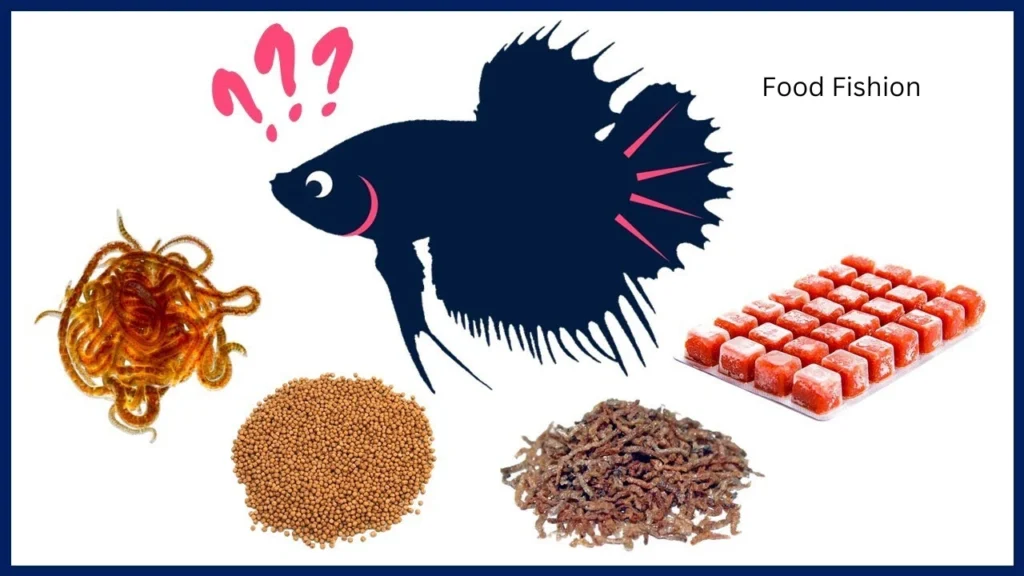
Understanding Betta Fish Diet :
Betta fish are carnivorous by nature. In the wild, they eat insects and insect larvae. This means they need a protein-rich diet to thrive. While they can eat some plant matter, protein should be the main focus of their diet. Knowing the natural feeding habits of betta fish is essential in choosing the right betta fish food for them.
Types of Betta Fish Food :
Choosing the right betta fish food ensures they receive proper nutrition for healthy growth and vibrant coloration. Here are the main types of betta fish food available:
Pellets :
- Pellets are one of the most common types of betta fish food. They are convenient, easy to store, and specifically formulated for bettas.
- Look for high-quality pellets that list fish or shrimp as the first ingredient. High-protein content is essential for betta fish food to support their energy levels and health.
- Feed 2-3 pellets twice a day. Avoid overfeeding, as it can lead to digestive problems.
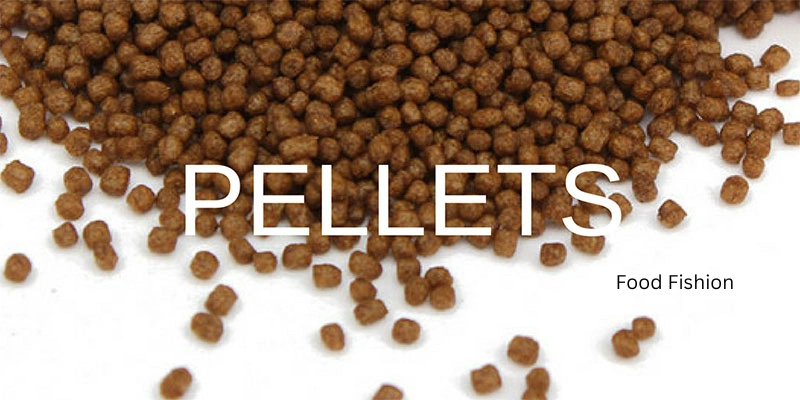
Flakes :
- Flake food is another option, but it can be messy and less nutritious than pellets.
- If using flakes, make sure they are designed for betta fish and contain high protein content. The right betta fish food ensures better digestion and brighter colors.
- Avoid overfeeding, as flakes can quickly pollute the water and harm your betta fish’s health.
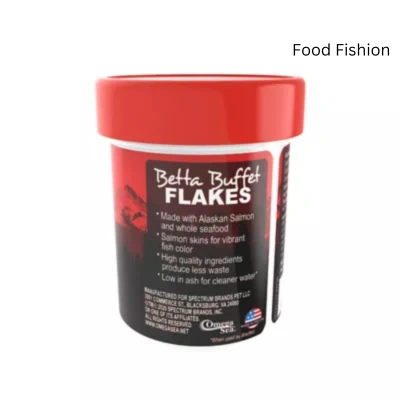
Frozen Food :
- Frozen foods like bloodworms, brine shrimp, and daphnia are excellent protein sources for betta fish.
- Thaw the food before feeding to make it easier for your betta to eat. This type of betta fish food is rich in nutrients and mimics their natural diet.
- Offer frozen food 2-3 times a week as a treat to add variety to their diet.
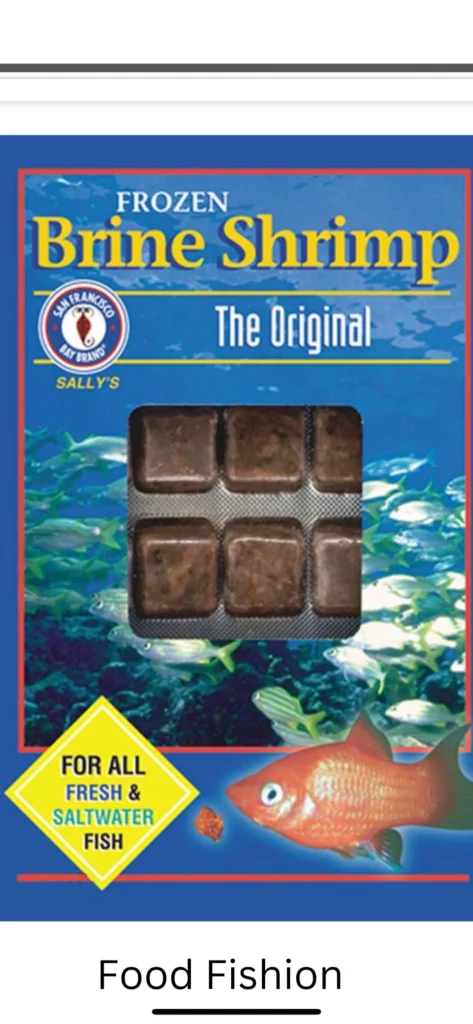
Live Food :
- Live foods, such as mosquito larvae, brine shrimp, and worms, are closest to a betta’s natural diet.
- They provide enrichment and encourage natural hunting behavior, which is vital for mental stimulation.
- Ensure the live food is free from parasites and safe for your fish. Clean and safe betta food is crucial for their health.
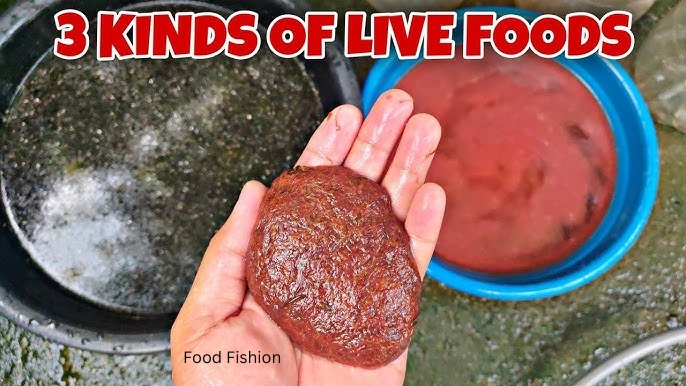
Freeze-Dried Food :
- Freeze-dried foods like bloodworms and daphnia are convenient alternatives to live food.
- Soak them in water before feeding to prevent digestive issues. This step ensures that the betta fish food is safe and easy to eat.
- Offer as an occasional treat, not a staple diet, to keep their nutrition balanced.
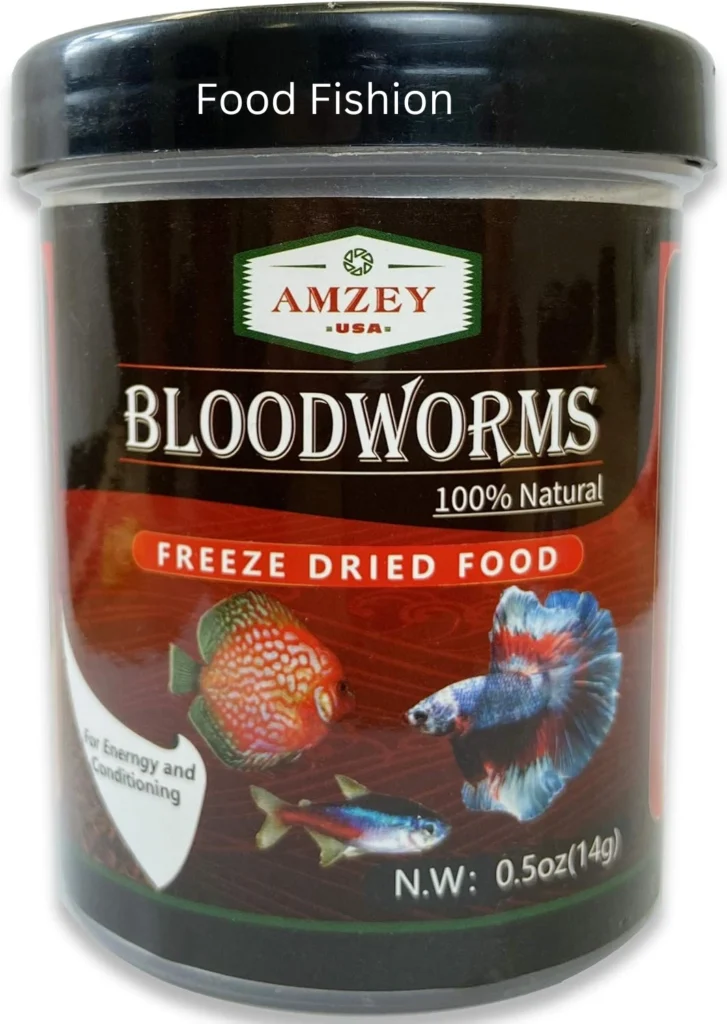
How Much and How Often to Feed :
- Feed your betta fish twice a day with a small portion they can consume in 2-3 minutes. This helps prevent overfeeding and keeps their digestive system healthy.
- Avoid overfeeding, as leftover betta fish food can dirty the tank and harm the fish.
- Skip feeding one day a week to help with digestion and prevent bloating. This break is essential for maintaining your betta fish’s health.
Signs of Overfeeding :
- Uneaten food at the bottom of the tank.
- Cloudy water.
- A bloated or lethargic fish.
- Constipation, indicated by stringy feces.
If you notice these signs, reduce the amount of betta food and ensure proper tank cleaning. Overfeeding can lead to serious health problems for your betta fish.
Special Considerations for Betta Fish Food :
- Young Betta Fish: They need more frequent feedings, about three times a day with smaller portions. Choosing the right type of betta food ensures healthy growth.
- Adult Betta Fish: Twice daily feeding is sufficient, and the food should be rich in protein.
- Sick Betta Fish: Offer easily digestible betta. fish food like live or frozen daphnia. Avoid overfeeding to support quicker recovery.
Best Practices for Feeding Betta Fish :
- Variety is Key: Offer different types of betta food to ensure balanced nutrition. A mix of pellets, frozen, and live foods keeps their diet interesting.
- Remove Uneaten Food: This prevents water contamination and keeps the environment safe.
- Observe Your Fish: Watch their behavior to ensure they’re eating properly. Healthy betta fish are active and responsive.
- Feed in Small Amounts: Bettas have small stomachs, about the size of their eye. Too much food can cause health issues.
Foods to Avoid :
- Bread or human food, which is not suitable for betta fish.
- Food designed for other fish species, as it lacks essential nutrients for bettas.
- Expired or moldy betta fish. food, which can be harmful.
- Overly large pellets that are hard to eat and may cause choking.
Homemade Betta Fish Food :
If you prefer homemade betta food, consider these options:
DIY Gel Food :
- Combine high-protein ingredients like fish, shrimp, and vegetables, then blend and set with gelatin. This ensures that your betta gets nutritious and fresh food.
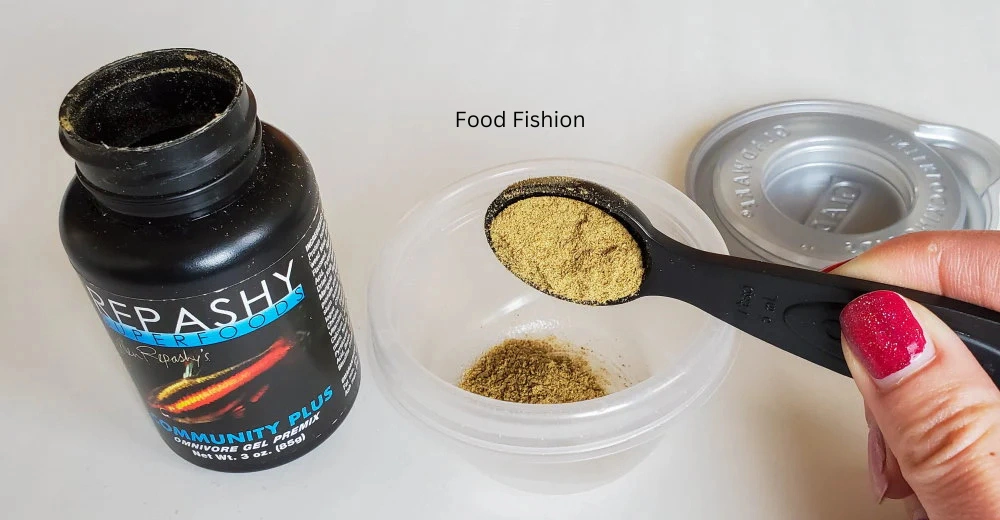
Egg Yolk :
- A small, cooked portion can be fed occasionally. It is a great source of protein and easy to prepare.
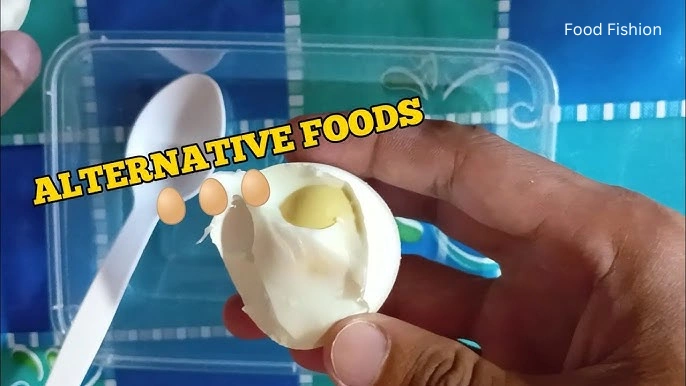
Vegetables :
- Tiny amounts of blanched peas can help with digestion but should not be a regular diet part. This fish food option helps with constipation.
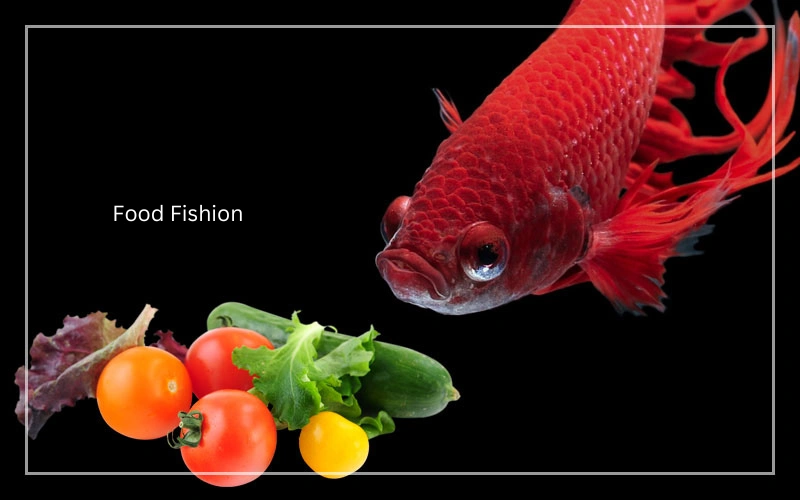
Common Feeding Mistakes :
- Overfeeding: This is the most common mistake leading to health issues like bloating and constipation.
- Feeding Only One Type of Food: Variety ensures better nutrition and keeps your betta healthy and happy.
- Ignoring Expiry Dates: Always check betta food freshness to prevent health risks.
- Feeding Cold Food: Thaw frozen foods properly to avoid shocking your fish and affecting their digestion.
Conclusion :
Feeding your betta fish the right way is key to their health, color, and happiness. Provide a varied, protein-rich diet and observe their behavior regularly. Avoid common mistakes like overfeeding, and always ensure the food is fresh and suitable for bettas. Choosing the right betta food is one of the most important aspects of caring for your pet.
Remember, a healthy diet is one of the best ways to show love to your betta fish. Offering a balanced and nutritious betta food selection will ensure they thrive, live longer, and display their most vibrant colors. Happy feeding!
FAQs :
High-protein pellets are the best staple, complemented by occasional frozen or live foods.
Twice daily, with portions they can consume in 2-3 minutes.
No, human food like bread is not suitable and can harm their health.
Possible reasons include stress, illness, or dislike for the type of food. Try offering variety.
Yes, if it’s free from parasites and contaminants.
Yes, it can lead to bloating, constipation, and water pollution.
Skip feeding for a day and offer fiber-rich food like blanched peas.
Yes, but soak them first to prevent digestive issues.
Yes, using high-protein ingredients like fish and shrimp.
They should consume the food within 2-3 minutes, with no leftovers in the tank.
